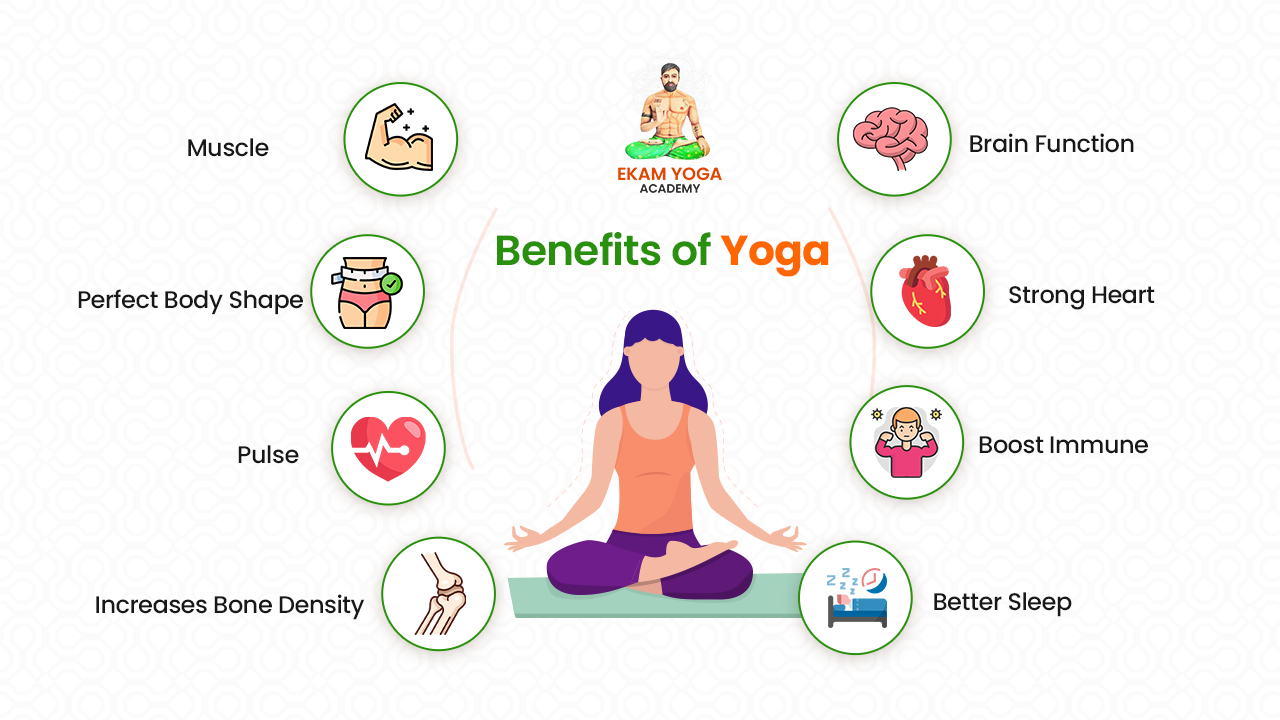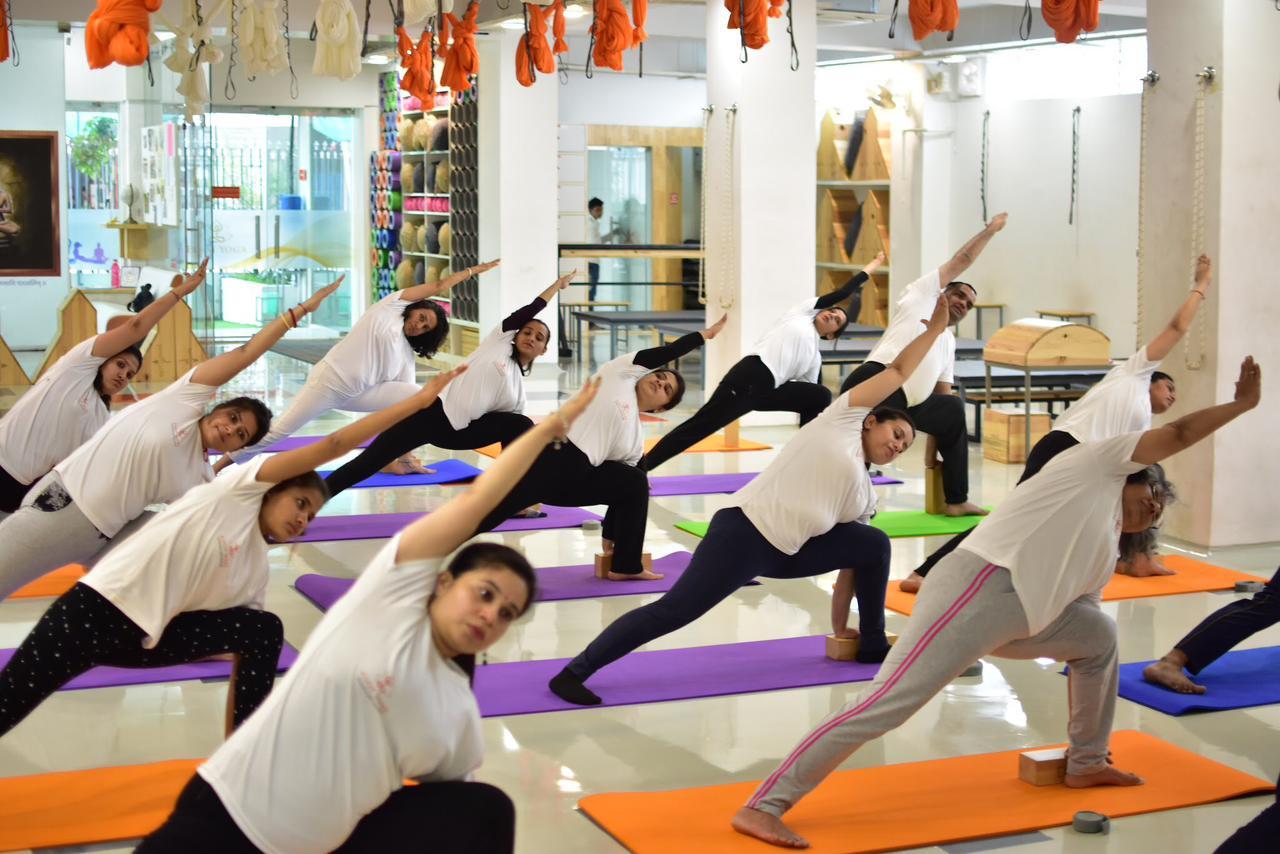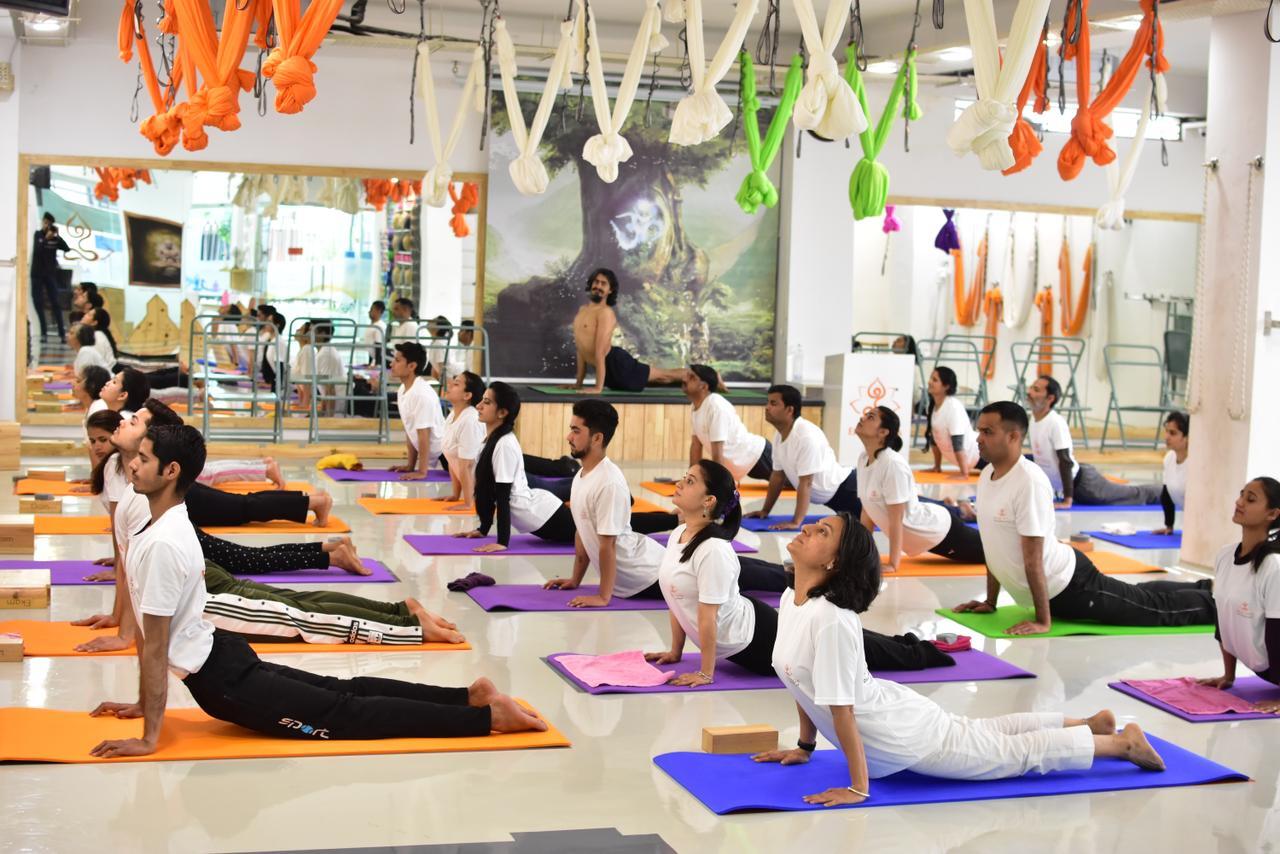The Benefits of Yoga: From Mindfulness to Physical Health
Yoga is not just an exercise. Yoga is the science of well-being. Yoga has become a popular form of exercise and relaxation around the world and for good reason. Its benefits extend beyond the physical realm and can help with mental and emotional well-being as well. Yoga is beneficial for our overall health.
“A disease-free body, a violence-free society, a confusion-free mind, an inhibition-free intellect, a trauma-free memory, a sorrow-free soul, and a quiver-free breath is the impact that yoga can make in your life.” - Gurudev Sri Sri Ravi Shankar
In this post, we'll explore some of the key benefits of practicing yoga, from improving flexibility and strength to reducing stress and anxiety.
Let’s look at the many benefits of yoga in greater depth.
1. Improved Physical Health
Yoga is an excellent way to improve flexibility, strength, and balance. The practice involves a variety of poses, or asanas, that work for different muscle groups in the body. This can help improve posture, reduce the risk of injury, and even alleviate chronic pain. Yoga has also been shown to improve cardiovascular health, boost immune function, and reduce inflammation.
2. Mental and Emotional Well-being:
In addition to its physical benefits, yoga can also have a positive impact on mental and emotional health. Practicing yoga regularly has been shown to reduce stress and anxiety, improve mood, and increase feelings of relaxation and calmness. Yoga can also help with sleep, as it can improve sleep quality and reduce insomnia.
3. Mindfulness and Self-Awareness:
Yoga involves focusing on the breath and being present at the moment, which can help cultivate mindfulness and self-awareness. Mindfulness is the practice of being aware of one's thoughts, feelings, and surroundings without judgment, and has been shown to reduce stress and anxiety and improve overall well-being.
4. Spiritual Connection:
For some people, yoga can also be a spiritual practice. The physical postures and breathing exercises are often combined with meditation and other spiritual practices, which can help foster a deeper connection to oneself and to the world around us.

5. Health benefits of yoga
-
Yoga for flexibility
-
Yoga for strength
-
Yoga for the right posture
-
Yoga for weight loss
-
Yoga to manage lifestyle diseases
6. Yoga for a violence-free society
-
Yoga for stress management
-
Mental health benefits of yoga
-
Yoga for addiction recovery
7. Benefits of yoga for students
- Yoga for mental clarity
- Yoga for mental calmness
8. Yoga for a trauma-free memory
-
Yoga for better sleep
-
Yoga for higher energy level
9. Yoga may improve quality of life
10. Yoga can improve balance
11. Yoga for better self-care
The bottom line
Yoga is a powerful tool for improving physical health, mental and emotional well-being, and spiritual connection. Whether you're looking to improve your flexibility and strength, reduce stress and anxiety, or cultivate mindfulness and self-awareness, yoga can help. So why not give it a try? Find a local studio or start practicing at home, and see for yourself the benefits that yoga can bring to your life.
Read More- Top 10 Benefits Of Yoga For Career Growth
FAQ's
Q.1 What are the 10 benefits of yoga?
Ans. " 10 health benefits of yoga asanas: Holistic well-being Flexibility and posture improvement. Manages weight without being stressed about it. Manage stress with ease. Calms the mind. Boosts immunity. Boosts energy. Immunity improves. Greater awareness. Strengthens relationship. "
Q.2 What is the importance of yoga in daily life?
Ans. Importance of yoga in daily life - Daily stress, negative thoughts, emotions, and feelings are all washed off with the practice of yoga. Yoga is multifaceted and practiced by people from all disciplines of life.
Q.3 What is the best time for doing yoga?
Ans. Ayurveda recommends doing yoga for good health first thing in the early morning. But in modern times, people with time constraints should do yoga at least once a day morning or evening. Can do it in the afternoon on a light or empty stomach. To do yoga is more important than not at all.
Q.4 Should we do yoga empty stomach?
Ans. Yes, yoga is recommended to practice on a light or empty stomach. 1-2 hours after a light meal or 4 hours after a heavy meal will benefit from doing yoga.





0 Comments
Write a comment